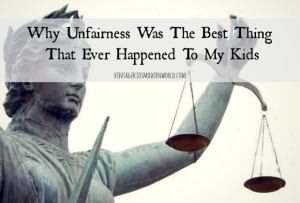The “Fairness” of the College Process
 Phil, a mediocre student at Daniel Hand High School, in Madison, Connecticut complained to me about the unfairness of the SAT. Phil’s grandfather was a retired investment banker who was on the Board of Trustees at an elite college. Even with his subpar grades, all Phil needed to do was score at the minimum level required for VIP applicants to gain admission. And, yes, Phil thought that the SAT was the unfair part of the college process.
Phil, a mediocre student at Daniel Hand High School, in Madison, Connecticut complained to me about the unfairness of the SAT. Phil’s grandfather was a retired investment banker who was on the Board of Trustees at an elite college. Even with his subpar grades, all Phil needed to do was score at the minimum level required for VIP applicants to gain admission. And, yes, Phil thought that the SAT was the unfair part of the college process.
The SAT started, oddly enough, as the most fair part of the entire college process. In the good old days of bigotry, Ivy league schools primarily admitted WASPy students from top prep schools such as Exeter, Andover, Groton and Hotchkiss. Jewish students from schools like PS 109 in New York were not welcome even if they had better grades than their prep school counterparts. How to make the process fair? Give them the same test. But of course this, too, led to cries of unfairness.
I assure all my clients that they will drive themselves crazy if they start to analyze the fairness of the process. Legacies get a boost. Unfair. Wealthy donors get a boost. Unfair. Those with connections and get a boost. Unfair. Is it unfair to give talented athletes such a tremendous boost? Debatable. At least the student-athlete has talent that will serve the school. But doesn’t it seem a bit nuts that Harvard’s hockey coach can secure the admission of a B student?
Class rank? Consider the following. East Lyme High School in Connecticut has a top twenty consisting of some of the smartest students in the state. The 20th ranked student at East Lyme probably would be number 1 at half of the high schools in Connecticut.
Grades. Just like class rank, those with As from a powerhouse school like East Lyme or The Williams School are in a different league than those with As from less competitive Connecticut high schools.
Activities. Please tell me who gets the edge in activities among the following candidates:
John, an all state soccer player who also acts in the school play and is the President of his class;
Jane, an all New England violinist who also sings in the school chorus and has played her violin for free at nursing homes several times;
Or Paul. At age 16, he created a charity that raised $20,000 for diabetes research. He also plays on the tennis team.
Or Donna. She wrote, directed, and starred in a film that was accepted at the Boston young filmmakers festival. Another film of hers won first prize at the Shoreline CT film festival.
If you have a distinct answer, I assure you that others have different answers. That is the essence of subjectivity and subjectivity leads to unfairness.
Is it fair that Native-Americans get a boost? It would seem so as they have been treated horrendously in a historical sense. But what about the Native Americans who are really wealthy? I once worked with a student whose mother was a high level member of one of the tribes that runs one of the casinos. Not only had the student lived a privileged life based on wealth but also his father was very white. The student had an English based last name and looked a lot like his Dad. He admitted to me that he faced no prejudice. He was admitted to Harvard.
Is it fair that students from Wyoming, Montana, Alaska, among other states get a boost? We do want geographic diversity but that doesn’t seem fair to Connecticut students applying to college.
There is always the populist argument against the wealthy. But what about the rich kid whose Dad is an absentee philanderer and whose mom is a raging alcoholic? Did he have an unfair advantage? I don’t think so.
Unfortunately, the college process is not entirely fair because life circumstances are not fair. I do not mean to write any of this to dampen your spirits. Indeed, I actually believe in the karma of admissions as in through 15 years of doing this work “good kids” seem to have always things that work out. But any analytical examination of fairness is bound to leave you frustrated.
Do the right things and things will work out but put fairness out of your mind.
